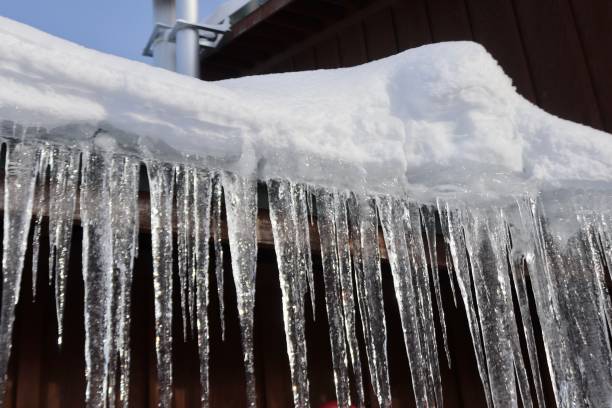We have found this post relating to Helpful Tips to Prevent Frozen Pipes this Winter down the page on the internet and decided it made good sense to share it with you in this article.

Winter can damage your plumbing, especially by freezing pipes. Here's how to prevent it from taking place and what to do if it does.
Intro
As temperature levels decrease, the risk of icy pipelines boosts, potentially leading to costly repair work and water damage. Recognizing exactly how to avoid frozen pipelines is essential for home owners in chilly climates.
Comprehending Icy Pipes
What creates pipes to ice up?
Pipes ice up when exposed to temperature levels listed below 32 ° F (0 ° C) for prolonged durations. As water inside the pipes freezes, it increases, putting pressure on the pipe wall surfaces and possibly causing them to rupture.
Threats and damages
Frozen pipes can cause water disturbances, residential or commercial property damages, and expensive repairs. Ruptured pipes can flooding homes and cause comprehensive architectural damage.
Indications of Frozen Pipeline
Recognizing icy pipelines early can stop them from bursting.
Exactly how to determine icy pipelines
Look for reduced water circulation from taps, uncommon smells or sounds from pipelines, and noticeable frost on exposed pipelines.
Avoidance Tips
Shielding at risk pipelines
Wrap pipes in insulation sleeves or use warmth tape to secure them from freezing temperature levels. Focus on pipes in unheated or external areas of the home.
Home heating strategies
Keep indoor spaces sufficiently warmed, particularly locations with plumbing. Open up cabinet doors to enable cozy air to distribute around pipelines under sinks.
Securing Exterior Plumbing
Yard hoses and exterior faucets
Detach and drain garden hoses before winter months. Mount frost-proof faucets or cover outdoor faucets with shielded caps.
What to Do If Your Pipelines Freeze
Immediate actions to take
If you presume icy pipelines, maintain taps open up to ease stress as the ice melts. Use a hairdryer or towels taken in warm water to thaw pipelines slowly.
Long-Term Solutions
Structural adjustments
Consider rerouting pipelines away from exterior wall surfaces or unheated areas. Include additional insulation to attic rooms, basements, and crawl spaces.
Upgrading insulation
Buy high-grade insulation for pipelines, attics, and wall surfaces. Appropriate insulation helps keep consistent temperature levels and minimizes the risk of icy pipelines.
Final thought
Preventing icy pipelines needs aggressive measures and fast feedbacks. By comprehending the reasons, signs, and preventive measures, home owners can protect their plumbing throughout winter.
Helpful Tips to Prevent Frozen Pipes this Winter
UNDERSTANDING THE BASICS: WHY PIPES FREEZE AND WHY IT’S A PROBLEM
Water freezing inside pipes is common during the winter months, but understanding why pipes freeze, and the potential problems it can cause is crucial in preventing such incidents. This section will delve into the basics of why pipes freeze and the associated problems that may arise.
THE SCIENCE BEHIND FROZEN PIPES
When water reaches freezing temperatures, it undergoes a physical transformation and solidifies into ice. This expansion of water as it freezes is the primary reason pipes can burst. As the water inside the pipe freezes, it expands, creating immense pressure on the walls. If the pressure becomes too great, the pipe can crack or rupture, leading to leaks and water damage.
FACTORS THAT CONTRIBUTE TO PIPE FREEZING
Low Temperatures: Extremely cold weather, especially below freezing, increases the risk of pipes freezing. Uninsulated or Poorly Insulated Pipes: Pipes located in unheated areas, such as basements, crawl spaces, or attics, are more prone to freezing. Insufficient insulation or lack of insulation altogether exacerbates the problem. Exterior Wall Exposure: Pipes running along exterior walls are susceptible to freezing as they encounter colder temperatures outside. Lack of Heating or Temperature Regulation: Inadequate heating or inconsistent temperature control in your home can contribute to frozen pipes. PROBLEMS CAUSED BY FROZEN PIPES
- Pipe Bursting: As mentioned earlier, the expansion of water as it freezes can cause pipes to burst, resulting in significant water damage.
- Water Damage: When pipes burst, it can lead to flooding and water damage to your property, including walls, ceilings, flooring, and personal belongings.
- Structural Damage: Prolonged exposure to water from burst pipes can compromise the structural integrity of your home, leading to costly repairs.
- Mold and Mildew Growth: Excess moisture from water damage can create a favorable environment for mold and mildew growth, posing health risks to occupants.
- Disrupted Water Supply: Frozen pipes can also result in a complete or partial loss of water supply until the issue is resolved.
WHY CERTAIN PIPES ARE MORE PRONE TO FREEZING
- Location: Pipes located in unheated or poorly insulated areas, such as basements, crawl spaces, attics, or exterior walls, are at higher risk of freezing.
- Exterior Pipes: Outdoor pipes, such as those used for irrigation or exposed plumbing, are particularly vulnerable to freezing as they are directly exposed to the elements.
- Supply Lines: Pipes that carry water from the main water supply into your home, including the main water line, are critical to protect as freezing in these lines can affect your entire plumbing system.
- Underground Pipes: Pipes buried underground, such as those connected to sprinkler systems or outdoor faucets, can be susceptible to freezing if not properly insulated.
https://busybusy.com/blog/helpful-tips-to-prevent-frozen-pipes-this-winter/

I have been very curious about Prevent Frozen Pipes and I am hoping you enjoyed reading the page. Do you know someone else who is interested in How To Avoid Freezing Pipes? Be sure promote it. I am grateful for your time. Please pay a visit to our website back soon.
Call Today